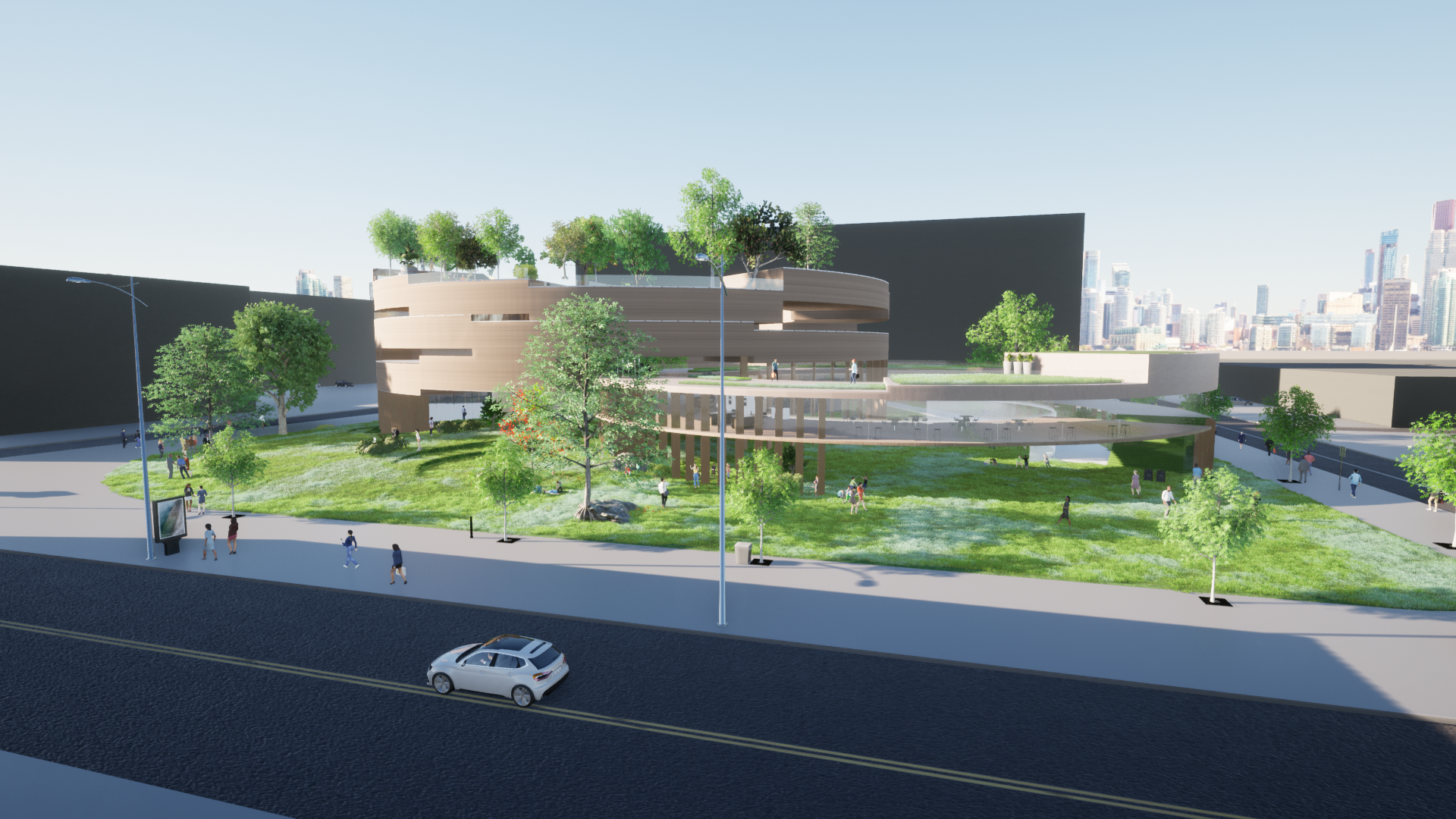ECOS
Re-imagined Urban Greenery
Conceptual Approach
In the heart of Koreatown, Los Angeles, the urban landscape often evokes images of towering skyscrapers and bustling streets, with little space left for verdant sanctuaries. As the city’s boundaries expand and green areas diminish, it prompts a critical examination of urban planning strategies. How can we revitalize Koreatown to accommodate the growing need for affordable housing while preserving public recreational spaces?
Enter ECOS, an innovative initiative poised to transform communal living in Koreatown. By seamlessly integrating nature and community, ECOS envisions a future where green spaces, residential complexes, and multifunctional facilities converge harmoniously. This visionary approach not only addresses the pressing need for affordable housing but also fosters collective well-being and sustainability within the urban fabric.
Imagine strolling through lush gardens, gathering with neighbors in shared outdoor spaces, and enjoying the benefits of a thriving, interconnected community—all within the dynamic landscape of Koreatown. Through ECOS, we can redefine urban living, creating a vibrant and inclusive environment where residents can thrive amidst the hustle and bustle of city life.
Site: Koreatown, Los Angeles, CA
Academic Year: 2021
LA Times notes that, for each person, the amount of green space amounts to something only smaller than a coffin
“It’s not something that we want to lose because we are never going to get that green space back,” Save Liberty Park’s Annette Van Duren said. Koreatown area has less green space than anywhere else in the city and there are no plans for public parks in Koreatown that include a significant amount of grass and trees.
save our park
Los Angeles Koreatown is one of the densest neighborhoods in the United States and highly diverse ethnically. Despite the name evoking a traditional ethnic enclave, the community is complex and has an impact on areas outside the traditional boundaries.
An urgent issue is that, as a neighborhood, Koreatown is lacking parks. In fact, it is regarded as one of the most “park poor” neighborhoods in the county, with a mere 0.1 acres of park space for every 1,000 residents; scoring lower than historically park poor neighborhoods like Van Nuys and South L.A.
rethinking city living
When urban living comes to mind, most envision crowded skyscrapers and bustling traffic, seldom considering the presence of open, green spaces. As urban cities continue to encroach upon the diminishing green areas, it prompts us to reconsider city planning strategies. How can we redesign cities to establish integrated spaces that cater to both public recreational needs and the necessity for affordable housing?
ECOS proposes a reimagination of communal living, merging the essentials of nature and community. This initiative conceptualizes a future where green spaces, residential complexes, and versatile facilities coalesce seamlessly, enhancing each other’s functionality and fostering collective well-being.
For more about this project, please reach out for full portfolio!



